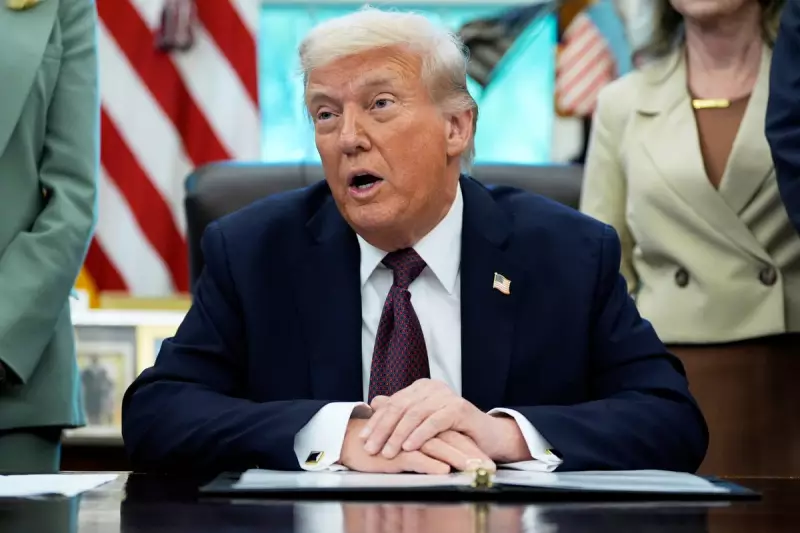
A bombshell allegation from a top US National Guard official has sent shockwaves through the Pentagon and Washington DC, suggesting former President Donald Trump sought to create a 'hit list' of individuals to be punished if he returned to power.
Major General Johnny Davis, adjutant general for Tennessee, reportedly informed his staff that a list was being compiled by Trump's allies, targeting those perceived as disloyal. The claim, first reported and then retracted by a local Tennessee outlet, has ignited a fierce political debate about the integrity of America's armed forces.
A Chilling Warning from a Senior Commander
The incident occurred during a routine National Guard briefing in Nashville. According to sources, General Davis expressed serious concerns about the potential politicisation of the military under a second Trump term. He allegedly warned his personnel that a mechanism was in place to identify and target individuals, a move described as highly irregular and deeply alarming by military ethics experts.
The Tennessee National Guard has since scrambled to contain the fallout, issuing a statement clarifying that General Davis was merely sharing unverified information he had heard from a colleague and that there is 'no validity to the claim.'
White House and Pentagon Reaction
The White House has declined to comment directly on the specific allegation. However, a Pentagon spokesperson emphasised that the US military remains steadfastly apolitical and committed to its core values. The report has nonetheless struck a nerve, coming amidst a highly contentious presidential election cycle where the role of the military is a key topic of debate.
Political analysts suggest the story, regardless of its veracity, highlights the profound anxieties within certain sectors of the government about a potential Trump comeback and its implications for longstanding norms and non-partisan traditions.
A Pattern of Behaviour?
Critics of the former president were quick to point out that the alleged 'hit list' is consistent with his past behaviour. They cite previous instances where Trump publicly criticised and sought to undermine officials he deemed insufficiently loyal, including high-ranking military leaders like the late General Mark Milley, former Chairman of the Joint Chiefs of Staff.
This latest controversy is expected to fuel further debate about the relationship between civilian leadership and the military, raising critical questions about safeguarding institutional integrity from political influence.





